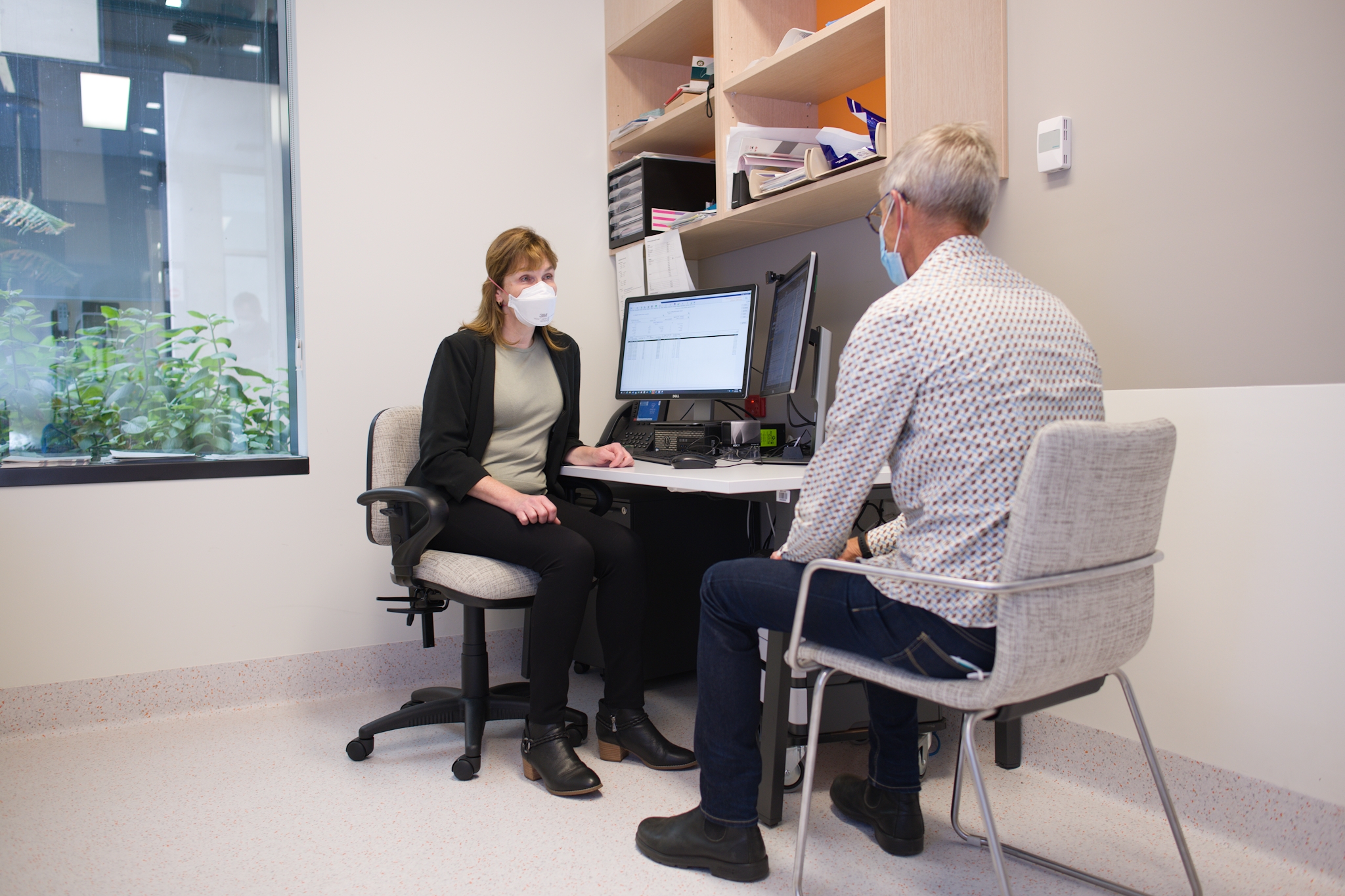
This section provides information on how to make decisions about the type of treatment you have and what you might like to consider during this time. It also covers common treatment approaches for a CUP diagnosis.
After you receive a suspected or confirmed CUP diagnosis, your specialist will talk to you about the different treatment options available to you. Your specialist can weigh up with you the benefits and risks of each treatment option (including electing for no anti-cancer treatment).
Asking your doctor questions or to clarify anything that you are unsure of will help you to better understand your diagnosis and make informed decisions about treatment options. Read the questions to ask your doctor prompt list. It is important to understand the practical implications of treatment, including any extra costs involved with each treatment option. Decisions you might want to consider are:
Discussing all of this with your treatment team, as well as your family and friends, is important to ensure you are making an informed decision about the best treatment for you. Making treatment decisions can impact your quality of life. You may wish to ask your doctor if you can record these discussions or consider getting a second opinion from another doctor to reassure you that you have explored all of your options.
You have the right to refuse any treatment offered. Some people with cancer choose treatment even if it offers only a small benefit for a short period of time. Others want to make sure the benefits outweigh the side effects so that they have the best possible quality life. Ultimately, it is your decision.
CUP is mostly detected after the cancer has already spread to other parts of your body. Whilst treatment may be able to control cancer and improve your symptoms, it is unlikely to cure it. Your doctor will discuss all the treatment options that are available to you. Options will depend on many factors, including the location(s) of your cancer, your overall health, and your wishes and goals of care.
Sometimes a multidisciplinary team (a group of medical professionals from different specialties) may meet to discuss your case and which option should be recommended for your case. There are various treatment options available for CUP. The most common treatment for CUP is chemotherapy. You may also have other drug therapies such as hormone therapy, targeted therapy, immunotherapy, or other treatments such as radiation therapy or surgery. Different types of treatment may be combined. It is possible that treatment may not cure you from cancer but make you feel better and also help you live longer.
Here are the links to other information pages to learn more about different aspects of treatment. You may also use the quick links on the right side of the page to navigate.

Most people are diagnosed with cancer of unknown primary (CUP) after they have symptoms or become unwell. Some people may be diagnosed during tests for another health condition. When cancer is suspected, you might be referred for tests or to a specialist.

The treatment you have depends on a number of things, including where the cancer is and your general health. A team of doctors and other professionals discuss the best treatment and care for you. The main treatment for Cancer of Unknown Primary is cancer drugs, most commonly chemotherapy. You may also have radiotherapy to help to control your symptoms and hormone therapy.




